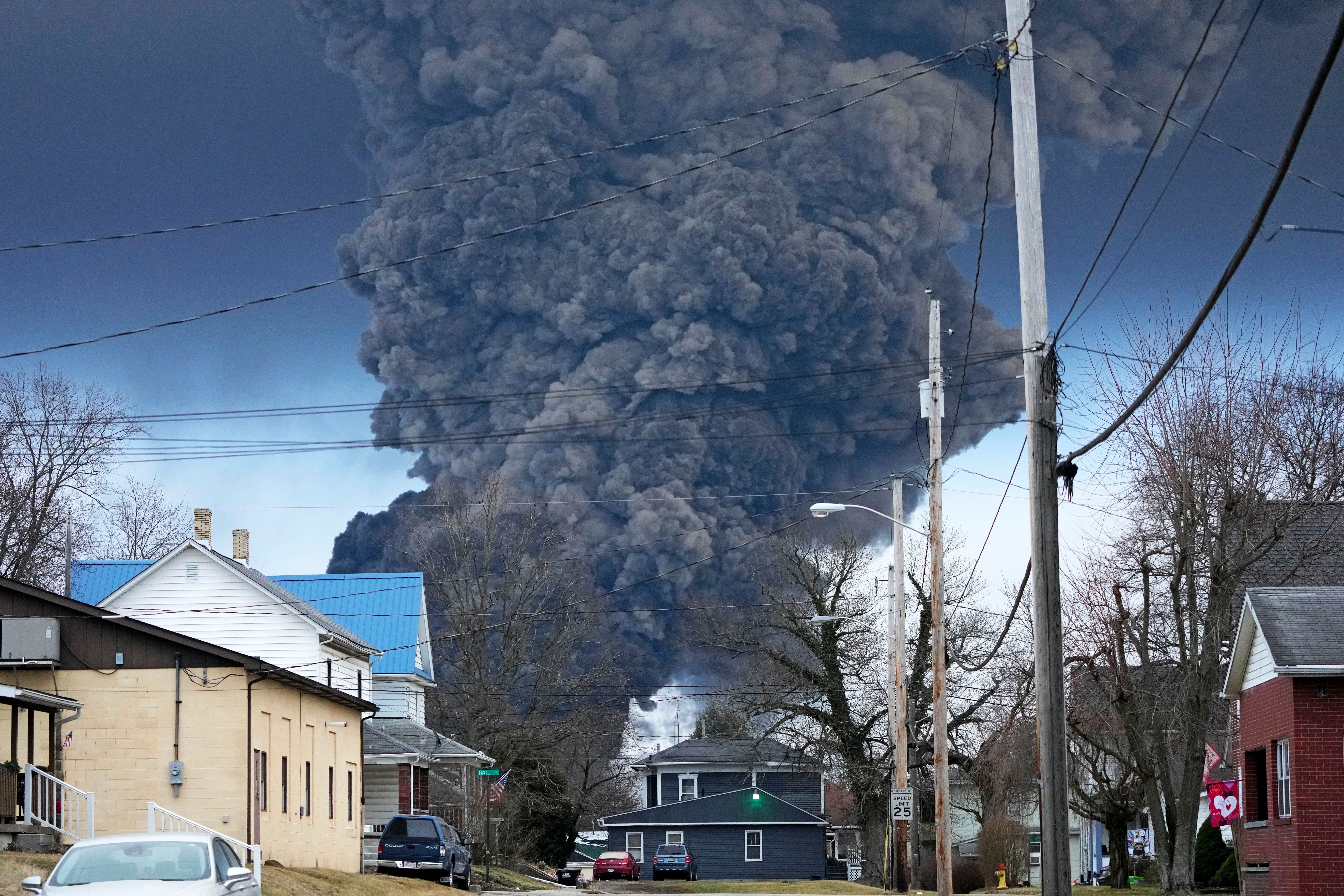
Ohio Senator JD Vance is facing criticism for taking 10 days to issue a statement about a train derailment near East Palestine that forced thousands of residents to flee their homes due to a toxic chemical spill.
The 3 February crash sparked a large fire and left hazardous materials including vinyl chloride, a volatile odorless gas, and phosgene seeping into the water supply.
On 13 February, Mr Vance said in a statement released on his Twitter page that he was “horrified” by the crash.
He said that “many questions remain” about when it will be safe for residents to return to East Palestine.
Mr Vance added that the crash was part of a troubling trend of “catastrophic infrastructure problems in our country” and that he was committed to understanding the long-term environmental impacts.
“I am dedicated to ensuring that the relevant authorities do not use tests conducted as a permission slip to pack up and go home,” Mr Vance wrote.

The tweet coincided with an appearance on Tucker Carlson’s Fox News show, in which Mr Vance claimed that the Biden administration were more concerned about diversity hiring than fixing failing infrastructure.
Twitter users questioned why it had taken Mr Vance so long to release a statement.
“10 days too late and gibberish,” wrote Ned Pile in response.

Christopher Hale, a former Democratic candidate from Tennessee, wrote: “The accident happened nine days ago, and this is your first public comment. In the mean time, you had time to tweet this prolific insight,” and linked to a tweet Mr Vance posted four days ago about Mexican pizza.
Mr Vance first responded to the rail disaster on 4 February, when he said his team was “monitoring” the situation.
Sherrod Brown, the Democratic senator from Ohio, made his first statement about the crash in a Twitter post on 6 February.
Meanwhile, the fallout from the Norfolk Southern Railway derailment that forced mass evacuations continues.
Among the 50 cars that derailed, 20 were carrying hazardous materials, including vinyl chloride, a toxic and flammable gas and phosgene, a gas deployed as a chemical weapon in the First World War.
The Environmental Protection Agency said that butyl acrylate chemicals have leaked into the Ohio River Basin, potential spoiling the drinking water for 25 million people.







